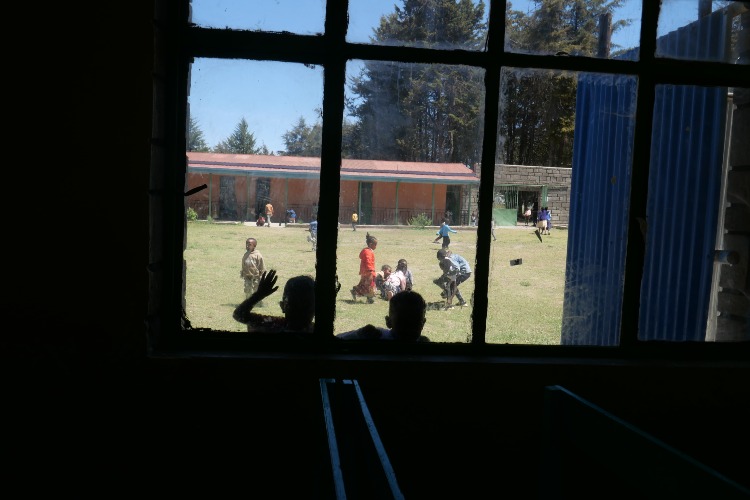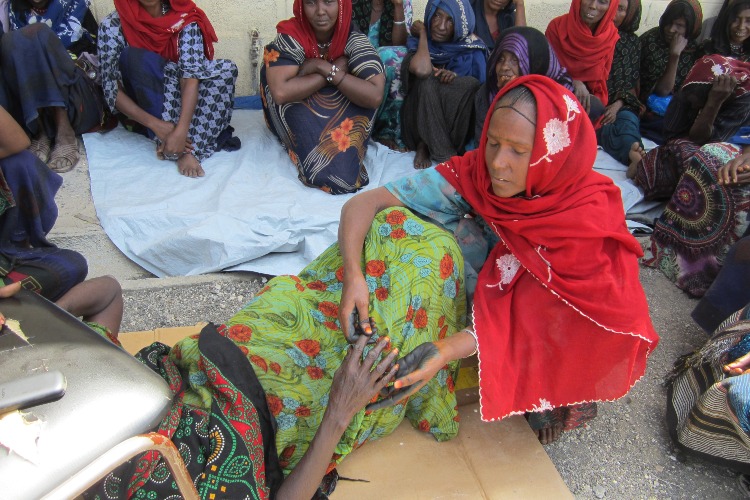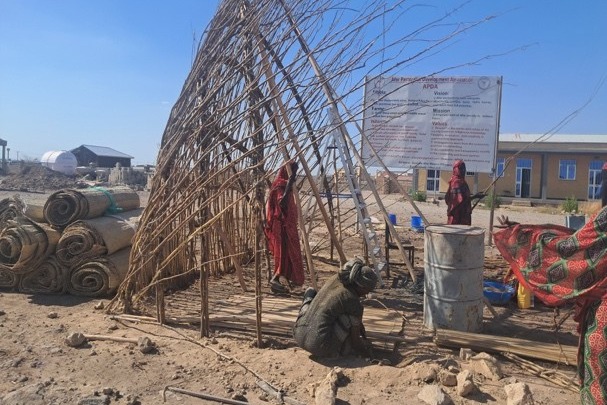Field Update: Conflict in the Simien Mountains
28 November 2021

"...we had one midwife escape in the middle of the night. She walked all the way to Debark, about 120km, over the course of three days over the mountains."
Tune in to the latest Zoom meeting between Sharon Elliott (CEO Ethiopiaid Australia) and project partner Brian Lovatt (Co-Founder of Simien Mountains Mobile Medical Service) about how our health work in the Simien Mountains has been affected by the ongoing conflict in northern Ethiopia.
Video transcript
It is a concern; it has been since the beginning
Of course, in our view, it breaks down into two parts. There was the first year from 30 November until July when all the fighting was not in Amhara. It was close to us; it was worrying, because we’re right up against the Tigrayan border.
But other than concern, there was no immediate threat.
That changed in the latter part of July this year when the Tigrayans moved south into the Amhara region, where we are in the north Gondar zone and at height of it were actually on the outskirts of Debark where our main office is. They even had infiltrated south of Debark, down towards Dabat which is the southern extremity of the North Gondar zone where we have midwives at all the different health centres.
That was a very scary period.
Two of the health centres that we support were overrun, so two midwives in Addi Arkay were evacuated. There didn’t seem to be any drama; there was transport, there was a road, there were buses. So they got out okay.
But in the mountains, the woreda Telemt was overrun and we had one midwife escape in the middle of the night, a female. She had a very tough ordeal. She walked all the way to Debark, about 120km, over the course of 3 days over the mountains. She had to get some young boys to escort her for safety.
The other midwife there we lost track of for a while. He stayed at the health centre with a few others and was there amongst 2,000 Tigrayan fighters who gave them a hard time at first. But they treated them for malaria and provided some first aid. So, I guess, they were eventually allowed to continue operating the health centre, although anything of any value was taken. So he’s fine and we’re now back in touch with him.
Those were the only two areas that were directly impacted. But there was fear, anxiety, limited things and travel was very questionable; there were so many checkpoints and so many different armed groups between the armies, militia, regional defence forces and local defence forces. With checkpoints, you never knew who you were dealing with - quite tense.
The secondary effect on us is the government just simply doesn’t function. So, things that we have to get assistance from the federal government for, simple things like customs clearance, approvals, imports - just the normal bureaucracy of things we have to do - duty free imports, food and drug administration to give us permission – those things are now more difficult.
I think the bigger concern overall is trying to see how this will get better at any point. That seems to be a long way off.
If you would like to help
Your donation today will help re-stock our clinics in the Simien Mountains with the medical supplies they need to serve their community; things like bandages, medicines, sterilisers and medical equipment. Any amount you can give will be gratefully received by Brian and the team at Simien Mountains Mobile Medical Service.
Thank you for your care.




